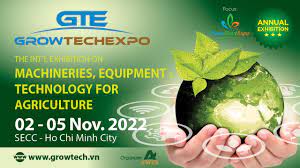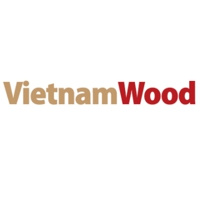- Read all
- Rice
- Fisheries
- Cassava
- Fertilizer & Pesticide
- Coffee
- Animal Feed
- Cocoa
- Seed
- Tea
- Wood
- Pepper
- Agricultural Cooperations
- Cashew
- Agricultural Investments
- Rubber
- Governmental Policies
- Sugarcane
- Agricultural Startup Ecosystem
- Corn
- Technological Innovations
- Spices
- Organic Agriculture
- Bean
- Food Manufacturing
- Fruit & Vegetable
- Agricultural Value Chain
- Flower
- Water & Waste Management
- Meat
- Processed Food
- Dairy
- Plant Originated Products
- General Agro Commodities
- Animal Originated Products
- Home
- Organic Agriculture
Organic Agriculture
Farming without chemicals
Farming has changed over the years. In the old days, farmers grew food without using chemicals and fertilisers. These days, they add these things to be able to grow as much food as possible for as much profit as possible. To do this they often use chemicals that are neither good for people nor good for the soil. However, many people realise that badly-grown food can be bad for their health. Therefore they are now turning to organic farming, which does not involve putting chemicals in their fields.
A soil-less solution to growing veggies
The founder of a new farm 22 kilometres west of Siem Reap is hoping to change the way that businesses and individuals in the city get their greens, and without relying on Siem Reap’s notoriously poor soil quality to do so. Happy + Co is a hydroponic farm on 3.5 hectares in Sasar Sdam commune, on the far side of Puok district, where they’re growing an ever-expanding range of vibrant veggies. The farm already produces okra, spring onion, pumpkin, melon, morning glory, snake gourd, lettuces, papaya and passion fruit delivered on the day that they’re picked. Later this year, tomatoes will also be added to the list.
Smart farming a bright future for Vietnam
Ready-to-eat tomatoes, and lettuce, grown without soil, and consumed unwashed, are the future in Vietnam and people will soon have the chance to experience this form of ‘smart agriculture’. This year, this IT-based agricultural project will experiment on growing high-value-added vegetables including medium-sized tomatoes and low-potassium leaf lettuce that will be the source of clean, ready-to-eat food. The potassium content in this kind of lettuce is one-fifth as compared with lettuce grown in any ordinary way making it suitable for diabetics and people who are on a diet.
Urbanites hunting for homegrown produce amidst worsening food safety in Vietnam
Families in Vietnam’s major cities like Hanoi and Ho Chi Minh City are turning to clean food tended by their relatives in rural provinces after recent news exposing the alarming use of banned chemicals in the food industry. Phuong, a resident in District 12, Ho Chi Minh City, said all ingredients used for cooking in her family are transported directly from their hometown in Quang Ngai, a province in central Vietnam. Her husband Tuyen said his family has been worried by ongoing news about chemical-fed cattle and chemical-sprayed greens sold in the market, so they have switched entirely to self-sourcing their daily food.
Organic veggies steal the show at Äà Lạt’s An Cafe
Äà Lạt in winter is too cool for people like myself who live in HCM City, while it is ideal for foreign tourists escaping freezing weather in their home countries. After wandering about town one day, I visited a café to warm up. Nestled on a charming corner of a hill at Äà Lạt’s Ba Tháng Hai and Thủ Khoa Huân streets, and surrounded by old sakura trees, An Café has a poetic view.
Vietnam Urged To Earn Money From Organic Agriculture
Vietnam has abundant agricultural resources, but its experts continue to argue about what farm produce would earn big money. “If Vietnam focuses on organic agriculture, its farm produce would have great advantages in the world market,” said Nguyen Lam Vien, General Director of Vinamit, a company that makes dried fruit. Dragon fruit which is a favorite in many markets in the world has been grown in Binh Thuan province for 20 years.
Organic Shrimp Farmers Protect Mangrove Forests
HCM CITY (VNS) — After three years of implementation of the Mangroves and Markets Project (MAM), shrimp farmers have become more aware of organic production techniques and the need to preserve mangrove forests in their areas. "Local farmers in the southernmost province of Ca Mau have been able to significantly increase their income. They now have higher productivity and prices for their organic shrimp, and get paid for environmental services," Nguyen Thi Bich Thuy, project manager, said at a project review meeting of the first phase held in HCM City last week.
Huge Capital Invested In Safe Agricultural Products
A recent study by the Institute of Policy and Strategy for Agriculture and Rural Development shows that vegetable consumption in Hanoi is about 2,600 tons per day, or 950,000 tons a year. But the current amount supplied to the city is only 600,000 tons a year, equivalent to only 60 percent of demand. Many housewives said that they were willing to pay high prices for products that are truly safe but it is difficult for them to find “safe” ones.
Agricultural Experts Deliberate Future Of Sustainable Farming
Agricultural experts from the Abu Dhabi Farmers’ Services Centre at the third edition of Global Forums for Innovations in Agriculture spoke on topics unique to Abu Dhabi such as “hydroponics in the UAE” and ‘the impact of human food habits and behaviour on environmental resources’. Delegates were also treated to a Technical Tour of a farm in Abu Dhabi’s Al Katem area, which contained a number of agricultural innovations, such as greenhouses, hydroponics, and Global GAP Certification, one of 110 farms in Abu Dhabi to achieve the prestigious title.
Vietnam encourages farmers to go organic
Experts in Vietnam are debating the best direction for the country's agriculture industry to go in; while agricultural resources are abundant, farmers remain poor. Therefore, some experts suggest turning to organic agriculture to earn money on the global market.
Vietnamese vegetable farm gains US, EU organic certificates
Organica, a system of organic food development and distribution in southern Vietnam, is one of the first farms in Vietnam to receive two organic farming certificates from the U.S and the EU.
The Soilless Market Goes Organic & Biologic
Mapal Plastics has existed for almost 30 years. In the last few years the company caters to the dramatic increase in the Organic & Biologic agriculture, primarily in the developed world.
Events See more

Vietnamplas 2022 - Vietnam International Plastic and Rubber Industry Exhibition
23-03-2023 - 26-11-2022 09:00 - 17:00
Saigon Exhibition and Convention Center (SECC) – 799 Nguyen Van Linh Boulevard, District 7, City. Ho Chi Minh.

GROWTECH EXPO - FLORAPLANTEXPO 2021
02 - 05-11-2022 09:00 - 17:00
Saigon Exhibition and Convention Center (SECC) – 799 Nguyen Van Linh Boulevard, District 7, City. Ho Chi Minh.

VTG 2022
18 - 25-10-2022 09:00 - 17:00
Saigon Exhibition and Convention Center (SECC) – 799 Nguyen Van Linh Boulevard, District 7, City. Ho Chi Minh.

VIETSTOCK 2022 - SPECIALISED EXHIBITION OF LIVESTOCK, FEED AND MEAT PROCESSING IN VIETNAM
12 - 14-10-2022 08:00 - 17:00
799 Nguyen Van Linh, Tan Phu Ward, Dist. 7, Hochiminh City, Vietnam

VTG 2022
21 - 27-09-2022 09:00 - 17:00
Saigon Exhibition and Convention Center (SECC) – 799 Nguyen Van Linh Boulevard, District 7, City. Ho Chi Minh.
.png)
VIETFISH 2022
22 - 26-08-2022 09:00 - 17:00
Saigon Exhibition and Convention Center (SECC) – 799 Nguyen Van Linh Boulevard, District 7, City. Ho Chi Minh.
Business Opportunities See more
-
BURANI INTERFOOD is looking for Buyers in Vietnam
Type:
November 22, 2021
-
BURANI INTERFOOD is looking for Buyers in Vietnam
Type: Wholesaling Meat
November 22, 2021
-
BURANI INTERFOOD is looking for Buyers in Vietnam
Type: Wholesaling Meat
November 22, 2021
-
BURANI INTERFOOD is looking for Buyers in Vietnam
Type: Wholesaling Meat
November 19, 2021
-
BURANI INTERFOOD is looking for Buyers in Vietnam
Type:
November 19, 2021
-
Indian purchaser looking for high quality cashew nut kernel from Vietnam
Type: Exporting Cashew
Mar 14, 2016
534
Limitless database of qualified and verified agricultural partners
124
Exclusive buy & sell leads on specific agricultural commodities
24
Agricultural events in Vietnam and Asia Pacific region
Stay informed!
Enter your email address below to receive updates each time we publishes new content
